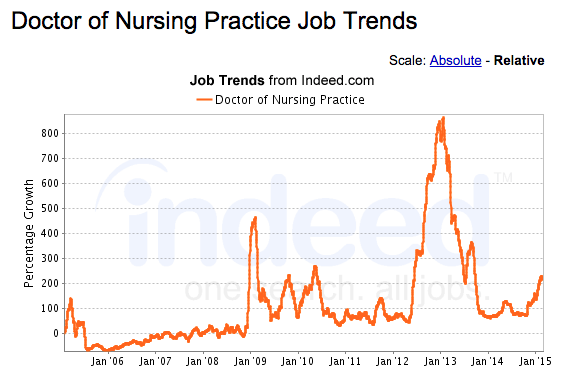Here’s an interesting article from today’s Wall Street Journal, discussing how an increasingly complex health care system is pushing hospitals to require more-advanced degrees when hiring nurses. While the article focuses on the requirement of a bachelor’s degree, as opposed to an associate degree, the general thrust of the article seems just as relevant for those considering a DNP. Some excerpts from the article:
The trend in nursing mirrors a wider one unfolding in other sectors such as manufacturing and office administration, which are demanding more education and skills than in the past.
Such “upskilling” in reaction to a slack labor market was particularly intense in nursing, which saw a flood of new entrants over the past decade.
Others say the evidence shows that better-educated nurses lead to improved health outcomes, and that the skills taught in a bachelor’s-degree or BSN-completion program are increasingly relevant to the way care is now delivered.
All of these points amply support the choice to pursue a DNP.
